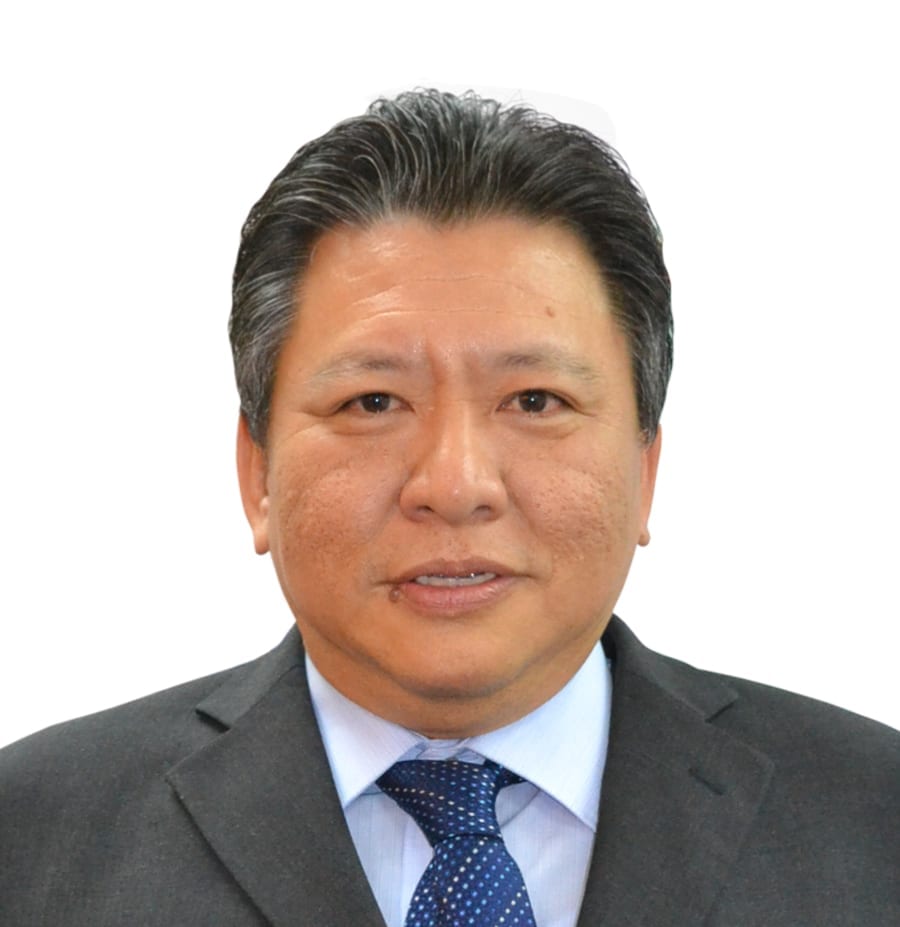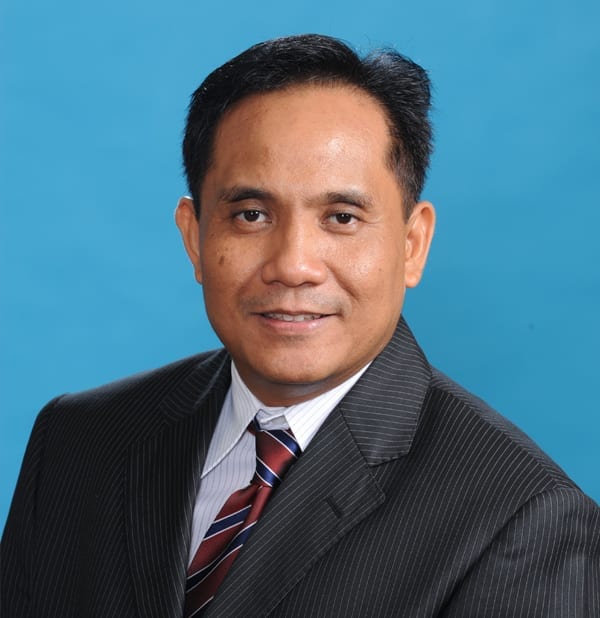
Samuel L. Po is the founder and President of JS Unitrade Merchandise Inc., a market leading consumer goods company with trusted brands such as EQ Baby Diapers, Charmee Feminine Protection, Caress Incontinence Care, Secure Adult Pull-Up Pants and Nursy Baby Wipes. Entrepreneurally-savvy and exposed to business since childhood in Iloilo City, he struck out on his own after school and dabbled in different businesses. In 1990, he first entered the consumer goods industry by introducing affordable baby diapers to the market.
Q1: Before JS Unitrade, you were in the electrical business. What made you enter the diaper and sanitary protection industries?
A: My son was born the year before, and my wife and I had a hard time looking for disposable diapers to use when out of the house. It was quite expensive and a luxury back then and the quality was not so good. At one point, I had even ventured as far as Alabang to buy diapers, from our home in Quezon City. I then realized that there must be opportunity so I took a closer look.
With feminine protection, there were the multinational brands that were selling their products at amazing prices and then there were local brands that had inconsistent quality selling for very cheap. We felt that we could bridge this by offering good value—high quality products at affordable prices. In short, I had identified gaps in the market that I felt we could add value and differentiate in with our own products.
Q2: JS Unitrade has been market leader vs multinational players in diapers (since 2012) and a close challenger in the sanitary protection industry. It took you years to conquer these Goliaths. What were the key turning points that made you gain market shares?
A: Let’s start with EQ diapers then Charmee feminine protection.
When we started, we were basically a trader. We had costs to operate and we marked up products from our suppliers to cover that plus a little profit. At one point, we were selling several competing brands and even varied products from diapers to wafers to pet food — we had lots of products and not much market share for each to show for it. What I learned from that experience was to focus on products that had the most potential rather than to have an array of products that kept us busy but produced little result for all the effort. After the Asian Financial Crisis, we stopped distributing a lot of the other products and focused on baby diapers, particularly was a premium Taiwanese diaper brand. However, during the crisis, baby diapers started to be more widely accepted but people were looking for more affordable variants, and we found an opportunity to launch a mass brand, which is how EQ Diapers was first conceptualized. Several years after, people became more affluent and discerning, which is why we launched EQ Dry. We also got our first celebrity endorser, as we wanted to position it as an aspiring yet friendly brand. We also continued innovating and launching new product features like cloth-like backsheet and magic tapes that moms appreciated. We made sure to communicate this to consumers, and that we are available in the right channels.
For Charmee, we actually made a slight error in thinking that the opportunity was slightly trailing the leading brand when, in fact, the dynamics of the category necessitated that we target a different consumer segment. The consumers are highly loyal in this category; thus, it is important to catch them when they are open to trying the brand. When we switched strategies, it enabled us to talk to the right consumers rather than trying to appeal to too wide a segment who were not really interested. Another key was uncovering our own strengths and weaknesses, and improving on them — improving our product (which we would know from receiving consumer feedback), refocusing our efforts (knowing which promotions were appealing to consumers) and also studying our results (knowing what particular product had potential).
Q3: You are a great believer in high quality products at lower prices vs the leading multinational competition. They, on the other hand, invest heavily in marketing communication to build brand equity and emotional connectedness. Local competitors have been following your low price strategy. How can you sustain your low price advantage?
A: Investing in marketing communications has its place in brand building as consumers need to know what we are offering — in terms of the benefits from the product itself and the trust associated with the brand. We concentrate on offering good value products, and this can mean different things to different people, which is why we have different tiers to serve different moms. For baby diapers, we have EQ Dry for more discerning moms who want the more premium quality and features, EQ Plus for moms who are juggling a budget and want some extra features and not sacrificing quality, EQ Colors for moms who want a very basic yet reliable diaper, and, recently, we also introduced EQ Pants which is an underwear format that provides convenience and easy diaper changes. We believe “low price advantage” is relative to the consumer’s expectations; just like in the car industry where some may want to pay for a luxury car but others just want something that can take them from point A to point B. Anyone else can bring out a cheaper alternative by removing features or even undermining quality, but we would like to strike a balance on the product quality and features while making sure we are able to offer it at a reasonable price. We don’t aim to be the cheapest, but to bring the best value to each of our consumers. We try to do this by making sure we are offering something that consumers actually want.
Q4: What was your childhood like growing up in Iloilo? How did your childhood experiences influence your thinking process?
A: I grew up in a retail environment, as my family lived above the bazaar store my parents owned in Iloilo City. My siblings and I would work in the store during school holidays, and we would even sell other things like ice-candy during summer. It exposed me to a lot of different things, which helps me a lot since I do not have a formal education in marketing or sales. While the products, landscape and formats have changed a lot, the basic principles are still the same. The product itself must be acceptable and serve a need; it should be packaged appropriately, priced fairly and placed in the right channels accessible to the consumer or buyer. Coming to Manila, I was also exposed to a very different environment and forced me to see other perspectives. I think it’s key in the consumer industry to be able to see things from the consumer’s perspective and to be able to understand what’s driving their choices.
Q5: Can you share some specific hard-to-forget marketing and business failures to our young readers? What lessons did you learn from them and how did they shape your subsequent thinking and behavior?
A: As I mentioned, we were selling at one point selling pet food that we did not really know much about. In the end, we could not really sell these properly, had issues with warehousing it and had to dispose of it at a loss. You have to know what you’re selling, and be willing to invest the time and resources to get to know it. Focusing and knowing your product is crucial. After that, we made sure we knew what we were selling. We ask a lot of questions! Then a few years ago, we introduced biodegradable and flushable wipes — the product quality was good but consumers were not yet ready to pay a premium for environmentally friendly wipes. Wipes was just starting to take off at that time and consumers just wanted regular wipes. That product got delisted. Timing in launching products is crucial and can be a very costly mistake, especially since you have to spend a significant amount to have some channels to carry them.
Q6: What do you want your legacy to be? How do you define your purpose in life?
A: We actually did a self-review earlier this year and came out with the refreshed Company Purpose, Principles and Shared Values. We looked back at what we as a company have stood for and how that aligned with where we wanted to go, and how I personally see the company. We see the company as a vehicle to make a difference in the lives of our consumers. It’s core to why we want to offer high quality products at reasonable prices to begin with. We believe that our products today, and in the future, should be able to make the lives of our consumers better in some way — whether to simply make their lives more convenient, more hygienic or even to enable them to do something. To sum it up, JS Unitrade’s purpose is to enrich the lives of families worldwide one product at a time. It’s an ambitious goal, but we believe that it encapsulates our fundamental and timeless reason for existence. I think this also captures my desired legacy and purpose on a personal level, as well.


